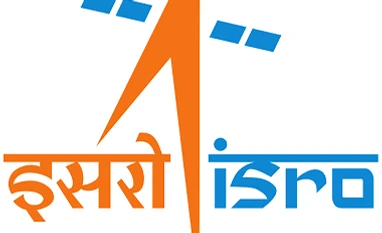India’s space agency will on Wednesday launch a rocket with 20 defence and commercial satellites for customers from around the world.
This would be Indian Space Research Organisation (Isro)’s biggest attempt so far on the Polar Satellite Launch Vehicle (PSLV), and would also demonstrate India’s capability of sending multiple satellites to lower earth orbit on a single launch.
The rocket, to be launched at 9.26 am, will carry Cartosat-2C, an earth observation satellite for defence needs, along with 19 satellites for customers such as Google-owned Terra Bella and former NASA employee-owned Planet Labs.
Isro is building a consortium with Hindustan Aeronautics Ltd, Godrej Aerospace and Larson and Toubro to assemble and launch the PSLV rocket by 2020 for both indigenous needs and to tap global customer launches. The move would also help crunch the time to launch a PSLV rocket to once in three weeks from India’s space pad in Sriharikota, against the norm of once every two months.
Isro Chairman A S Kiran Kumar had said in a recent interview: “While we are enabling and enhancing the capacity for our own use, we also have an opportunity to make it commercial. Towards that we are discussing with industry on how to form a consortium or a mechanism where our capacity for launching can go up to maybe 12-18 per year. One is a consolidation phase where capacity building to meet demand is one of the key things we are concentrating on.”
On Wednesday, the PSLV rocket will also carry a 85-kg maritime satellite built by Canada’s defence research agency and Canada’s space agency, a 130-kg scientific satellite from Germany’s aerospace center, and a 120-kg earth observation satellite for Indonesia’s space agency.
Isro will also carry Skysat-3, a 110-kg earth imaging satellite with capability to capture high definition videos designed and built by Terra Bella (formerly Skybox Imaging), a company owned by Google. It will also hurl the imaging satellite made of commercially available electronics of Planet Labs, the Silicon Valley firm started by former NASA scientists.
In addition, two nano satellites weighing less than 1.5 kg, built by College of Engineering in Pune and Sathyabama University for experimental studies on greenhouse gases and help HAM operators will also ride piggyback on the rocket.
The biggest payload would be the 725.5-kg Cartosat-2C, the earth observation satellite with capability to identify objects of less than a metre, to be used for strategic purposes. This satellite is similar to the earlier Cartosat-2, 2A and 2B.
This would be Indian Space Research Organisation (Isro)’s biggest attempt so far on the Polar Satellite Launch Vehicle (PSLV), and would also demonstrate India’s capability of sending multiple satellites to lower earth orbit on a single launch.
The rocket, to be launched at 9.26 am, will carry Cartosat-2C, an earth observation satellite for defence needs, along with 19 satellites for customers such as Google-owned Terra Bella and former NASA employee-owned Planet Labs.
More From This Section
This would be a crucial day for Isro to tap the global opportunity in small satellite launches. It senses business opportunity from firms such as One Web, which is targeting to send 700 small satellites into space within a short timeframe.
| PAYLOAD Some of the satellites the PSLV will carry on Wednesday |
|
Isro is building a consortium with Hindustan Aeronautics Ltd, Godrej Aerospace and Larson and Toubro to assemble and launch the PSLV rocket by 2020 for both indigenous needs and to tap global customer launches. The move would also help crunch the time to launch a PSLV rocket to once in three weeks from India’s space pad in Sriharikota, against the norm of once every two months.
Isro Chairman A S Kiran Kumar had said in a recent interview: “While we are enabling and enhancing the capacity for our own use, we also have an opportunity to make it commercial. Towards that we are discussing with industry on how to form a consortium or a mechanism where our capacity for launching can go up to maybe 12-18 per year. One is a consolidation phase where capacity building to meet demand is one of the key things we are concentrating on.”
On Wednesday, the PSLV rocket will also carry a 85-kg maritime satellite built by Canada’s defence research agency and Canada’s space agency, a 130-kg scientific satellite from Germany’s aerospace center, and a 120-kg earth observation satellite for Indonesia’s space agency.
Isro will also carry Skysat-3, a 110-kg earth imaging satellite with capability to capture high definition videos designed and built by Terra Bella (formerly Skybox Imaging), a company owned by Google. It will also hurl the imaging satellite made of commercially available electronics of Planet Labs, the Silicon Valley firm started by former NASA scientists.
In addition, two nano satellites weighing less than 1.5 kg, built by College of Engineering in Pune and Sathyabama University for experimental studies on greenhouse gases and help HAM operators will also ride piggyback on the rocket.
The biggest payload would be the 725.5-kg Cartosat-2C, the earth observation satellite with capability to identify objects of less than a metre, to be used for strategic purposes. This satellite is similar to the earlier Cartosat-2, 2A and 2B.
)